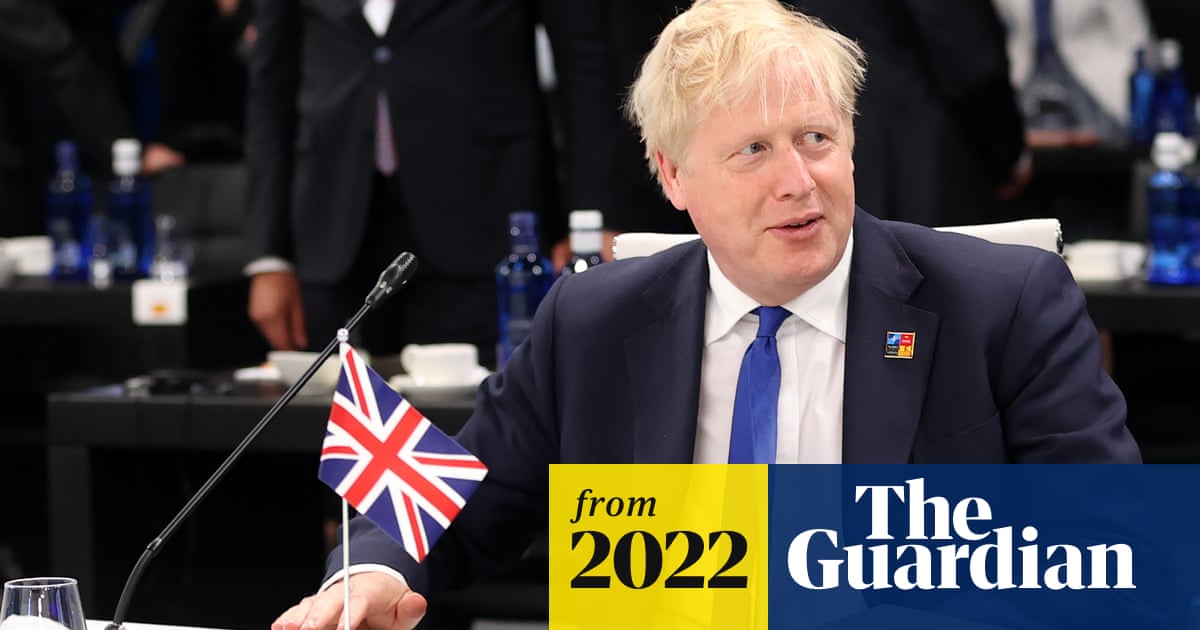BBC Income Crisis: Unprecedented Challenges And The Future Of Broadcasting

Table of Contents
Declining License Fee Revenue and the Shifting Media Landscape
The core of the BBC income crisis lies in the erosion of its traditional funding model: the television license fee. This decline is multifaceted, reflecting broader societal and technological shifts.
The erosion of the license fee model:
The license fee, once a reliable revenue stream, is increasingly challenged. This is due to several factors:
- Impact of streaming services (Netflix, Disney+, etc.) on TV viewing habits: The rise of on-demand streaming services has significantly altered viewing patterns, with many younger audiences abandoning traditional terrestrial television. This directly impacts the number of households paying the license fee.
- Rise of illegal streaming and its effect on license fee income: Piracy remains a significant problem, undermining the BBC's income base and creating an unfair competitive landscape. Combating this requires technological innovation and robust enforcement.
- Demographic shifts and the decline in traditional TV viewership: Changing demographics and the increasing popularity of online content have led to a decline in traditional TV viewership, impacting the overall number of license fee payers.
- Government pressure to reform the funding model: Political pressure for reform continues, adding to the uncertainty surrounding the BBC's long-term financial stability. Discussions around alternative funding mechanisms are ongoing, adding complexity to the situation.
The long-term implications are severe. Declining license fees directly translate to potential cuts in programming, reduced staff numbers, and a potential compromise on the BBC's commitment to high-quality, diverse content.
Increased Production Costs and the Demand for High-Quality Content
The BBC income crisis is further exacerbated by the increasing cost of producing high-quality content in a fiercely competitive media landscape.
Competition in the digital age:
The BBC faces intense competition from global streaming giants like Netflix and Amazon Prime Video, which invest heavily in original content. This necessitates a substantial investment in production to remain relevant and attract audiences.
- Rising costs of talent, technology, and international distribution: Securing top talent, investing in cutting-edge technology, and distributing content internationally all contribute to escalating production costs.
- Need to invest in digital platforms and online content: The BBC must invest heavily in its online platforms and digital content to reach younger audiences and compete effectively in the digital realm.
- Balancing the need for high-quality content with budgetary constraints: Maintaining high production standards while navigating budgetary limitations is a significant challenge that requires innovative approaches and efficient resource management.
The BBC needs to embrace innovative production methods, explore cost-effective technologies, and potentially streamline certain aspects of its operations to address the rising production costs while upholding its commitment to quality.
Exploring Alternative Funding Models for the BBC
To mitigate the BBC income crisis, exploring alternative funding models is crucial.
Subscription services and advertising revenue:
Several options exist, each with potential benefits and drawbacks:
- Potential benefits and drawbacks of introducing subscriptions: A subscription model could generate substantial revenue but risks alienating viewers accustomed to free-to-air broadcasting. A tiered subscription system might be a more palatable approach.
- Challenges of balancing public service broadcasting with commercial pressures: Introducing commercial elements, like increased advertising, could compromise the BBC's commitment to impartiality and public service broadcasting.
- Public opinion on alternative funding methods: Public opinion on any changes to the funding model is crucial. Careful consultation and a clear communication strategy are necessary to gain public support.
- Examples of successful (or unsuccessful) alternative funding models in other broadcasters: Examining the experiences of other broadcasters who have adopted alternative funding models can provide valuable insights and lessons.
The feasibility and long-term impact of each model require careful consideration and analysis, balancing financial needs with the BBC's public service mandate.
The Future of the BBC in a Changing Media Landscape
The BBC's survival depends on its ability to adapt and innovate.
Adapting to the digital age:
To navigate the BBC income crisis and thrive in a rapidly evolving media landscape, the BBC needs to:
- Invest in digital innovation and technology: Investing in cutting-edge technology and digital platforms is vital for reaching new audiences and delivering content effectively.
- Strengthen its international presence: Expanding its international reach could unlock new revenue streams and enhance its global influence.
- Focus on niche programming and audience engagement: Catering to specific audience interests can increase engagement and attract new viewers.
- Collaboration with other broadcasters and media organizations: Strategic partnerships can create synergies and reduce costs.
The BBC's future hinges on its capacity to embrace change, adapt to new technologies, and cultivate a robust and diverse range of content that resonates with audiences across all platforms.
Conclusion: Securing the Future Amidst the BBC Income Crisis
The BBC income crisis presents a significant challenge to the institution, demanding immediate and decisive action. The decline in license fee revenue, coupled with rising production costs, underscores the urgency of finding sustainable solutions. Exploring alternative funding models, embracing digital innovation, and strategically adapting to the changing media landscape are crucial for securing the BBC's long-term future. What are your thoughts on resolving the BBC income crisis? Share your ideas on how to secure the future of the BBC and its vital role in British broadcasting.

Featured Posts
-
 Discover This Country Culture History And Travel Tips
May 03, 2025
Discover This Country Culture History And Travel Tips
May 03, 2025 -
 Could A Boris Johnson Return Save The Tory Party
May 03, 2025
Could A Boris Johnson Return Save The Tory Party
May 03, 2025 -
 Fortnites V34 30 Update Sabrina Carpenter Skin Gameplay Changes And Downtime
May 03, 2025
Fortnites V34 30 Update Sabrina Carpenter Skin Gameplay Changes And Downtime
May 03, 2025 -
 Asthdaf Sfynt Astwl Alhryt Rdwd Fel Dwlyt Ela Alhjwm Alisrayyly
May 03, 2025
Asthdaf Sfynt Astwl Alhryt Rdwd Fel Dwlyt Ela Alhjwm Alisrayyly
May 03, 2025 -
 England Women Vs Spain Women Match Preview Prediction And Lineups
May 03, 2025
England Women Vs Spain Women Match Preview Prediction And Lineups
May 03, 2025
